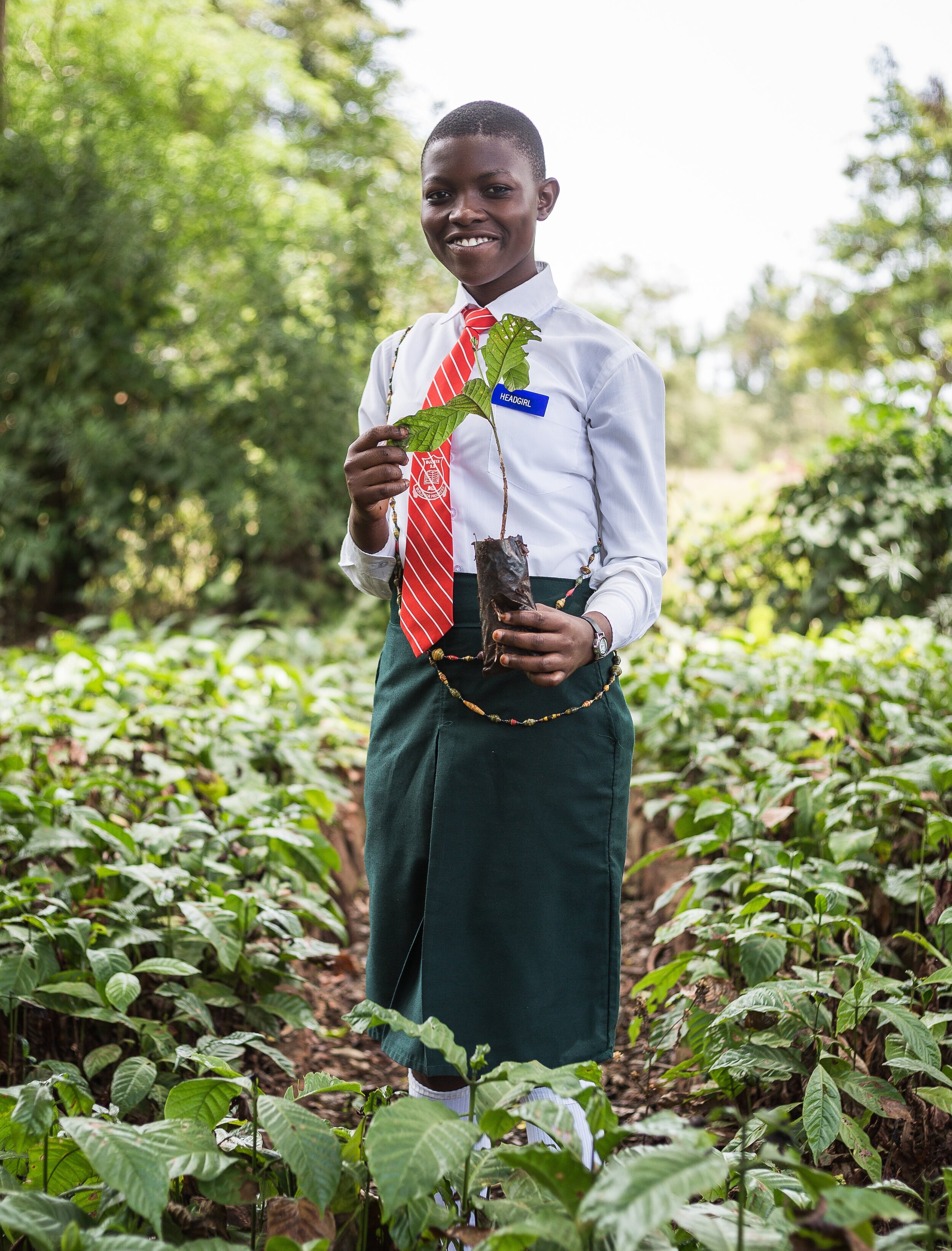How might participating in Educate! impact a girl’s life?
Our graduates are better off than their peers, but what do our impact results mean for female participants?
The following is a stylized example illustrating how participating in Educate! impacts a young woman over time, based on evidence from our external impact evaluations.
Barbara enrolls in the Educate! Experience and builds valuable transferable skills like self-efficacy, creativity, and grit.
Soft skills impacts were large and statistically significant for female Educate! participants 4 years post-program, e.g. self-efficacy at 0.13 SD, creativity at 22.9%, and grit at 0.21 SD.**
In two rigorous evaluations, students demonstrated large income and employment gains at the end of the program, before graduating from high school.
Barbara is able to pay her school fees with the income she earned and graduates from high school.
Female participants are 7.9% more likely to graduate than their peers.**
A follow-on RCT revealed that youth who go through our program are prioritizing tertiary, trading off short-term economic gains from working full time for longer-term potential gains from higher education.
Though Barbara has not been focusing on earning an income while enrolled in university, she graduates with honors and pursues employment as a civil engineer.
Females are 11% more likely to graduate and with a GPA that is 0.21 SD higher than those who did not participate in the Educate! Experience.**
*Results from a quasi-experimental evaluation conducted from 2015-2017, in partnership with BRAC, to better understand the impact of the Educate! Experience at scale: BRAC. (2018). “PSM End of Course Evaluation Report.”
**Results from female subsample of a follow-on Randomized Controlled Trial (RCT) to measure our program’s impact on students 3.5 years after graduating from secondary. Carney, Dana, et al. (2019). “Educate! Evaluation: Four-year Follow-up Report.”
In high school, Barbara starts a small business and earns nearly double the income of her peers.
Female Educate! participants earn 244% more income than their peers towards the end of secondary school, both genders earning 95% more than their peers not in the program.*
Barbara delays entering the workforce and enrolls in university to study engineering.
Female participants are 25% more likely to enroll in university and 22% more likely to choose a business or STEM degree than her peers who did not participate in the Educate! Experience.**
Barbara’s improved life skills, higher educational attainment, and improved gender-related outcomes are strongly correlated with long-term labor market and income improvements.
Female participants are 21% less likely to have children/have been pregnant, 18% less likely to report being a victim of inter-partner violence, and 28% more likely to feel as though she can decide whether she works outside of the home.**






